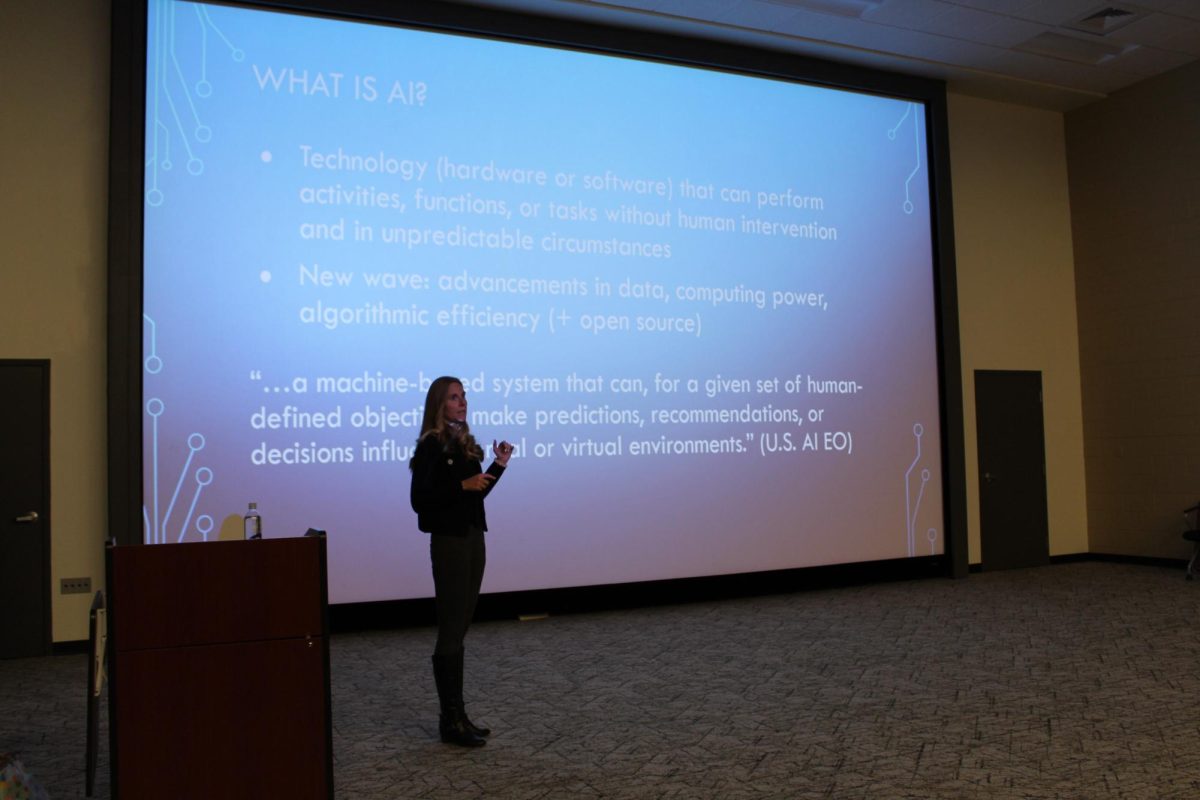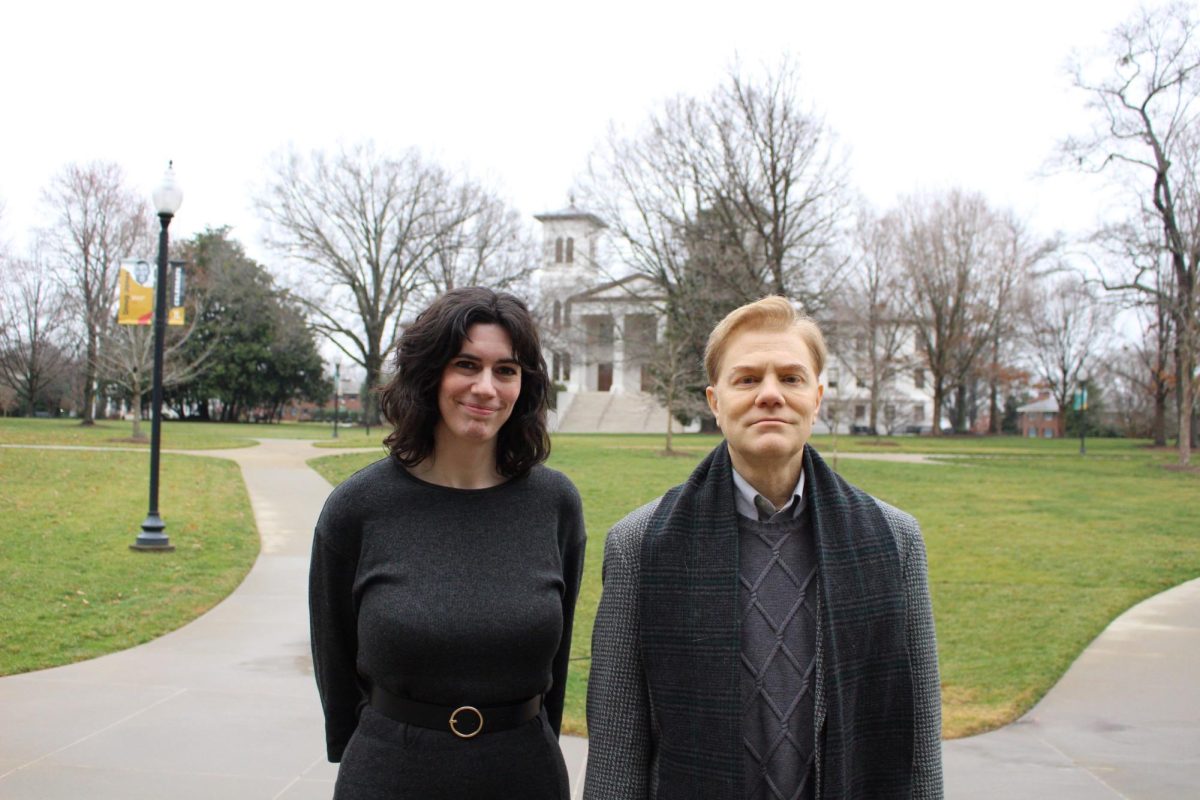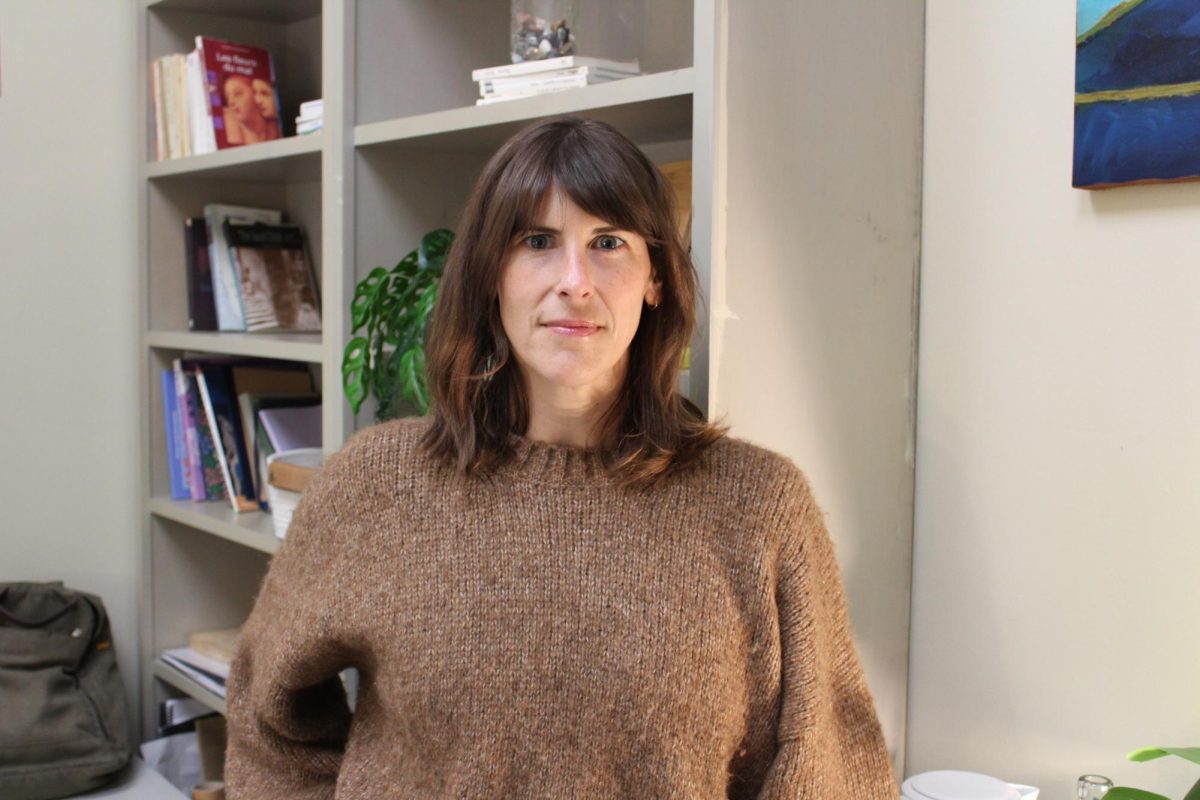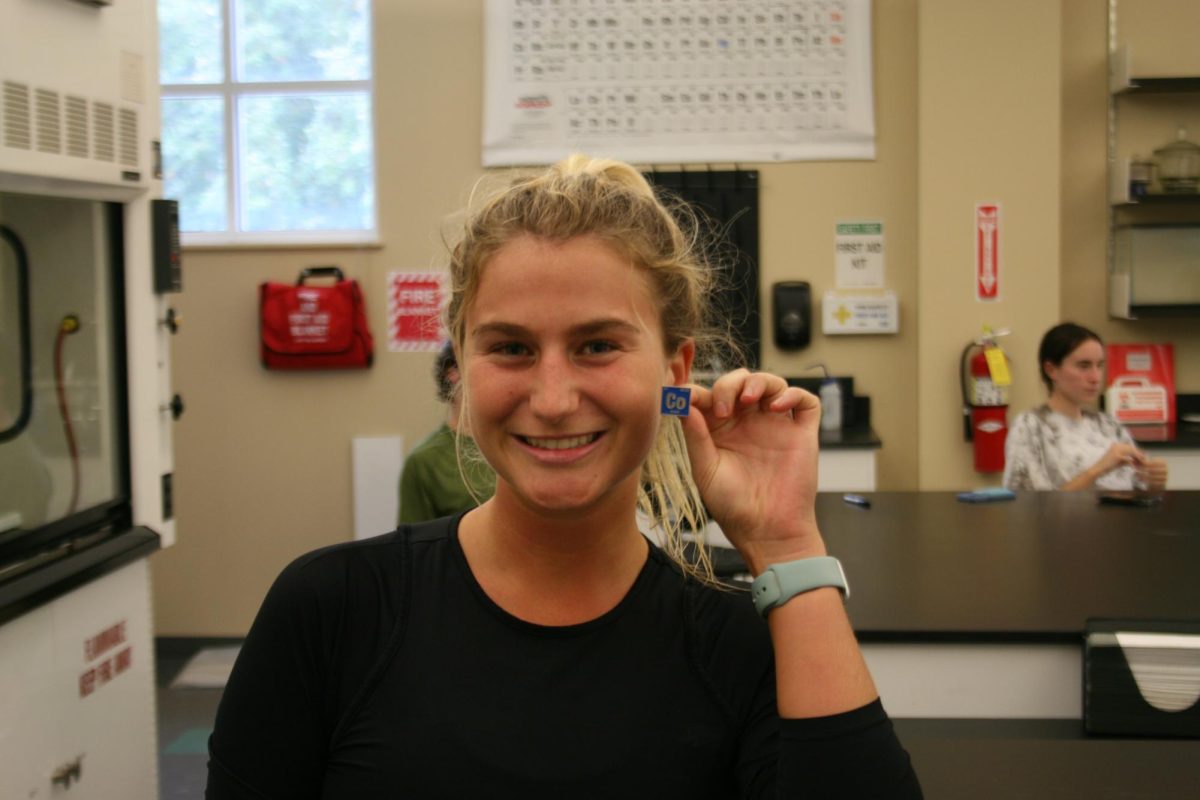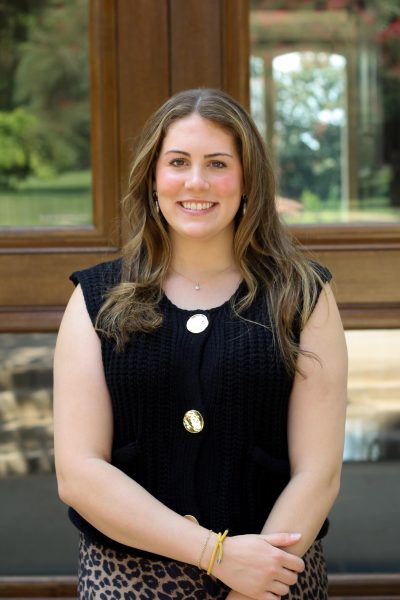On Nov. 2, Wofford hosted its second session for an ongoing lecture series focused on artificial intelligence.
The speaker, Economist and Policy Researcher Diana Gehlhaus, brought a focus on the power and perils of generative AI, discussing the specific implications of its expansion in many aspects of modern life.
This academic year, the Wofford community has displayed a clear interest in the topic of AI, through both this lecture series and the founding of the Wofford AI Working Group, which is backed by the President and Provost’s offices.
The leader of this group, Associate Professor of English Kimbery Hall, exists on the forefront of the AI discussion at Wofford.
“(The Wofford AI Working Group has) a year-long mandate to research and understand all the generative AI tools that exist now, how our students, faculty and staff are using them and may use them in the future and where we think this will take Wofford and what Wofford needs to do to respond,” Hall said.
Hall emphasized that, through this year-long effort, the group will observe and research the AI use habits of the Wofford community with the hopes of formulating a plan to officially introduce AI to the college in a fitting way.
Though these changes cannot yet be determined, Hall suggests that they may take the form of enhancements to a certain curriculum or additions to the college’s honor code.
However, the main goal of Hall and the AI Working group is to open a conversation on the topic of AI, leading the focus to Gehlhaus, who brought several nuanced ideas to the table.
A key concept that Gehlhaus introduced is the innate cooperation of AI and the format of a liberal arts curriculum. She suggests that a liberal arts student is taught to be adaptable and curious, two traits that correlate heavily with AI.
Hall expanded upon this idea, stating that, with critical thinking, comes the ability to “respond thoughtfully and carefully” to artificial intelligence, thereby garnering stronger results.
This ability to critically use AI also has the potential to mitigate some of the issues that come along with it. For example, both Hall and Gehlhaus noted the issues with interpreting AI-generated data. With critical thinking comes better data comprehension.
When speaking on the potential of AI comprehension for critical thinkers, Hall said that students have agency when interacting with AI, not the other way around.
“I think when (Gehlhaus) is talking about liberal arts, the thing is that we’re already set up (to teach critical thinking),” said Hall. “(We just have to) ask how we can build and preserve what’s great about liberal arts.”
“I think the goal of liberal arts education is not to train you just for one career but to train you to be effective in any number of careers that you choose,” said Hall, “so my goal (for the AI Working Group) is that we come together on some sort of vision for what Wofford can do best to train our students that are within our realm to be critical users and to be effectively competitive in the job market.”
Generally speaking, Hall and Gehlhaus see AI as expanding into almost all areas of modern life. Luckily for institutions like Wofford, it is a natural transition to take the concept of critical thinking that’s embedded into liberal arts and bring it to new technology.























